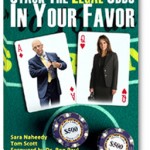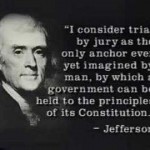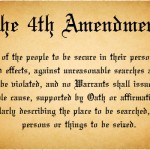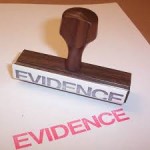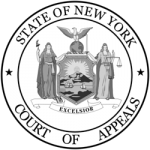What happens when an attorney and a guy who’s not a lawyer with a history fighting in court on his own get together to create a legal self-help book? You get a book with an attitude. Think Mark Wahlberg in the courtroom. Authors Tom Scott and Sara Naheedy combine to bring the attitude and the […]
The Seventh Amendment: Right to a Jury in Federal Civil Trials
The Founding Fathers had a healthy fear of government power. They relied upon citizen juries to check that power. The suspension of jury trials was one of Declaration of Independence grievances against King George. The Constitution’s 7th Amendment reflects colonial history and beliefs. John Adams described the place of the jury in the system of […]
The Exclusionary Rule in US Criminal Trials
Part of the Bill of Rights, the Fourth Amendment to the United States Constitution prohibits government searches or seizures without a warrant issued by a disinterested magistrate. The Fourth Amendment protects the right to have government stay out of a person’s home and property without prior approval by a judge. If the judge has found […]
Two NSA decisions: One for the Constitution, One for the Government
On December 27, Federal Judge William Pauley, of the Southern District of New York, admitted everything that, on December 16th, Judge Richard Leon indicated was wrong with the National Security Agency’s Data Collection and Surveillance[1] program and, unlike Judge Leon, decided the program was reasonable, lawful and constitutional. Pauley Admits the Dangers to Liberty, but Trusts the Government […]
Courageous NSA Ruling by Judge Leon Respects Privacy and Fourth Amendment
On December 16, 2013 US District Court Judge Richard Leon took on arguments[1] that over the years have been used to expand government intrusion into American life in ways that would have left James Madison “aghast”.[2] His opinion in Klayman v. Obama finds much of the National Security Agency’s (NSA) surveillance collection of “telephony metadata” […]
Direct vs. Circumstantial Evidence: Observation vs. Inference
There are two types of evidence at a trial: direct and circumstantial. One, if believed, directly proves a fact; the other allows a fact to be inferred. In court a trial is held to determine specific facts and the legal implications of those facts. In a criminal trial, the question is if the defendant broke […]
Considerations in Filing a Claim in the BP Oil Spill Settlement
Please Note: The Final and Firm Deadline for filing a claim is: June 8, 2015 For more information use the contact form at the end of this article. The April, 2010 BP Deepwater Horizon oil spill affected nearly every industry around the Gulf of Mexico. Individuals, non-profit institutions and businesses not directly associated with […]
The BP Oil Spill Court Approved Settlement Process
Please Note: The Final and Firm Deadline for filing a claim is: June 8, 2015 For more information use the contact form at the end of this article. On April 20, 2010, a blowout, explosion, and fire occurred aboard the Deepwater Horizon, an offshore drilling rig, engaged in drilling activities on the “Macondo Well” off […]
One Pleasant and Ten Practical Reasons to Have a Last Will and Testament
About seventy percent of Americans do not have a will. Many procrastinate. They believe they do not have enough assets or they simply do not want to consider their own mortality. If someone has not written a will, one has been written for them. State law determines what happens to the property of someone who […]
The Law of Negligence
Criminal law punishes people for actions that harm all of society. Tort law protects private rights from injuries to individuals. This area of law is also often referred to as personal injury law. A tort is an act that causes harm to another and is either intentional or negligent. Tort claims are based on the […]
